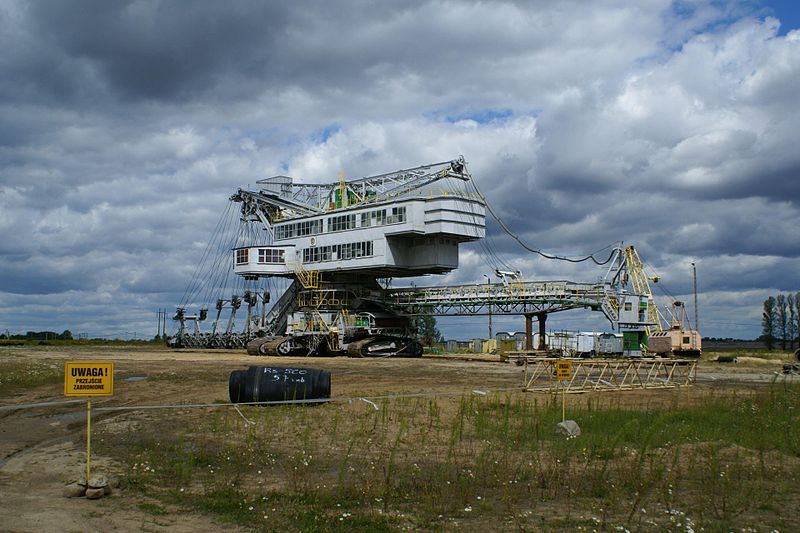A legacy of industrialization
The Konin lignite region, located in central Poland, stands as a testament to the country’s carbon-industrial legacy. This complex, developed around the city of Konin during the 1960s, consists of several open-pit mines and three coal-fired power plants. Initially state-driven, the industrial development was privatized in the late 1990s. However, the transition brought significant challenges, including rising unemployment, population decline, and regional stagnation. The population of Konin decreased by 10% between 2000 and 2015, reflecting the socio-economic impacts of these changes.
Over the past 15 years, the region has witnessed the rise of a grassroots protest movement, primarily opposing the planned expansion of open-pit mines. This movement, led by farmers and tourist operators affected by decreasing groundwater levels, has gained momentum. With the support of established environmental NGOs, they have engaged in legal battles against coal companies, leveraging EU environmental laws. Their efforts have successfully slowed the pace of lignite extraction, showcasing the power of community activism in environmental protection.
Facing the inevitable depletion of lignite deposits and stringent EU climate regulations, local public authorities have begun to envision a post-carbon future for the Konin region. This transition has been bolstered by the European Commission’s acceptance of the Territorial Just Transition Plan for Eastern Wielkopolska, which allocates new funds and initiates various transition projects. The region has also hosted the Polish Climate Camp, further nurturing a nation-wide climate movement and fostering discussions about sustainable futures.
Environmental monitoring, impact and challenges
Despite the high awareness of lignite mining’s environmental impacts, the Konin area lacks a robust citizen science and monitoring movement. Most environmental monitoring is carried out by organizations using limited technology and tools. Four main non-governmental organizations are at the forefront of confronting energy companies about their environmental impact: Ecological Association Eko-Przyjezierze, Foundation Rozwój TAK – Odkrywki NIE (Development YES – Open-Pit Mines NO), Greenpeace Poland, and EKO-Unia Association. These groups play a crucial role in advocating for environmental sustainability and accountability.
The environmental impacts of lignite mining in the Konin region are significant. Key pollutants include chemicals leaching into rivers and lakes, lowering surface and groundwater levels, destruction of forest ecosystems, and landscape changes leading to potential landslides. These issues underscore the urgent need for comprehensive monitoring and mitigation efforts to protect the region’s natural resources and communities.
The Konin lignite region’s journey reflects the broader challenges and opportunities in transitioning from fossil fuels to a sustainable future. With the support of initiatives like the ERICA project, the region is paving the way for a resilient and sustainable post-carbon era.




